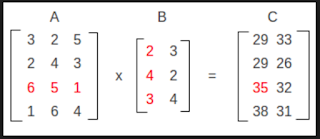
Find the smallest window in a string containing all characters of another string (With smallest window)
Given two strings string1 and string2, find the smallest substring in string1 containing all characters of string2 efficiently.
For Example:
Steps:For Example:
- Generate all substrings which starts with any one character from the pattern string
- Iterate all substrings which we generated and compare each character from the pattern string with the substring and check for all characters present or not
- If all characters present in substring then trim extra characters and choose the smallest window string
Java code:
public class StringInSmallestWindow { public static void main(String[] args) { String str = "niharika"; String findStr = "ir"; String result = null; if (str.length() < findStr.length()) { System.out.println("Pattern string is greater than source string"); return; } int j = 0; String[] arr = new String[str.length()]; // Get all substring which starts with any one character from the // pattern string for (int i = 0; i < str.length(); i++) { if (findStr.contains(str.charAt(i) + "") && str.substring(i).length() >= findStr.length()) { arr[j++] = str.substring(i); } } // Iterate all substrings which we generated for (int pnt = 0; pnt < j; pnt++) { String string = arr[pnt]; char[] tmp = findStr.toCharArray(); int cnt = tmp.length; int lastIndex = 0; // Compare each character from the pattern string with the substring // and check for all characters present or not for (int i = 0; i < tmp.length; i++) { if (string.contains(tmp[i] + "")) { if (lastIndex < string.indexOf(tmp[i])) { lastIndex = string.indexOf(tmp[i]); } string = string.substring(0, string.indexOf(tmp[i])) + '\0' + string.substring(string.indexOf(tmp[i]) + 1); tmp[i] = '\0'; cnt--; } } // If all characters present in substring then trim extra characters // and choose the smallest window string if (cnt <= 0) { arr[pnt] = arr[pnt].substring(0, lastIndex + 1); result = arr[pnt].length() < result.length() ? arr[pnt] : result; } } System.out.println("\nInput String : " + str); System.out.println("\n2nd String to find : " + findStr); System.out.println("\nSmallest window string : " + result); } }
OUTPUT:
Input String : niharika 2nd String to find : ir Smallest window string : ri





